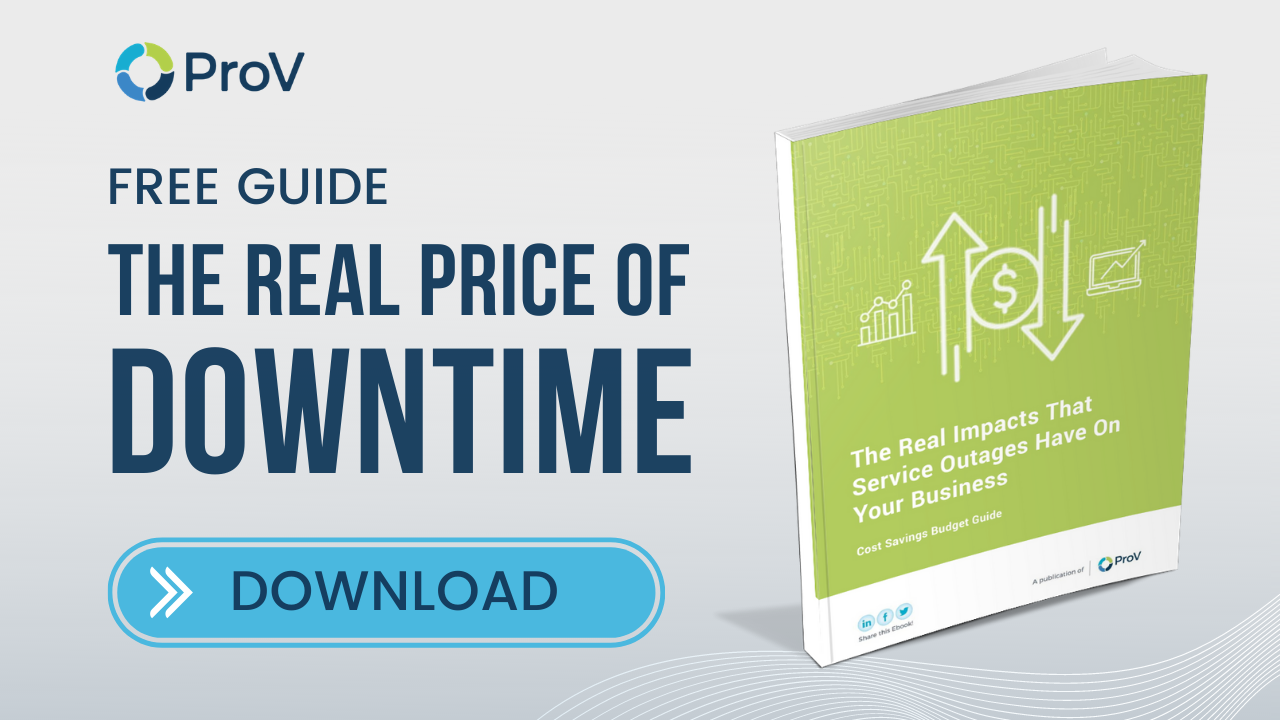Organizations are constantly evolving to keep up with technology and the changing demands of their customers. Not too long ago, companies had different software programs for different departments. But, with the advent of Enterprise Resource Planning (ERP) software, systems and databases became integrated; suddenly, these same organizations could share information across departments seamlessly and transparently. Now, the next evolution of ERP is here: Cloud ERP.
What is Cloud ERP?
As you might expect, Cloud ERP has a lot in common with Software-as-a-Service (SaaS) solutions. Where traditional ERP software resides within various proprietary servers to share information across departments, Cloud ERP puts all organizational functions into one complete system in the cloud with an MSP.
Today, running software in the cloud lets businesses achieve more, and that’s why savvy business owners and IT executives are migrating core IT applications at lightning fast speeds. In fact, the Cloud ERP software market is expected to be worth nearly $30 billion by 2022. What advantages are leading to this rapid adoption? Here’s our top five Cloud ERP benefits.
1. Integrated Business Applications
ERP systems have been a constant across corporate houses since the 1990s. But unfortunately, investment in new ERP system for many growing businesses is often dismissed due to sometimes unfair reputational baggage of cost and resource-intensive IT implementation procedures. Until now.
Cloud ERP software, usually comes bundled with a list of applications that can automate business data accumulation, storage, management, and inferences from various business functions like accounting, marketing, service delivery, etc.
CFOs are wising up to the fact that integrated business applications can speed their evolution and working with an MSP at flexible cost bring the benefits of Cloud ERP within the reach of many more organisations.
2. Centralized Information Center
When your enterprise is looking for accelerated growth, decision makers need to combine all relevant data across all business functions into one single source of truth. Without a centralized cloud ERP system, your data can reside in siloes that are ultimately useless to your business bottom-line.
By integrating data from across the entire enterprise, cloud ERP provides a solid foundation for automating key processes, like manual invoice processing that allow your teams to focus on core responsibilities. Automated monitoring controls and checks also helps guarantee accurate information, data conflicts, errors and redundancies as they arise. Increased visibility into your operations also allows your employees to deliver better quality service and achieve customer success.
3. Cost Savings
Purchasing ERP software is a capital expense that no CFO likes to see on the balance sheet, and it depreciates over time, requiring another capital expense down the road. Moving to Cloud ERP through managed services turns this into an operating expense that’s paid over time as the cost of doing business. You can run cloud ERP software like IFS in the cloud, completely managed by an MSP, through an SaaS service model that can scale up and down as needed to accommodate business growth. Companies benefit from this flexibility rather than bearing the entire expense of software on their own.
4. Accessibility
Today, employees increasingly are working remotely — from home, on the road, or even overseas. Cloud ERP provides greater access to data in real time, from any device with an internet connection. This improves communication and collaboration between team members at all levels.
5. Data Recovery
Cloud data backup, as part of a solid Disaster Recovery Plan (DRP), goes hand-in-hand with security. While hackers will always be looking to exploit weaknesses and a good Managed IT Service Provider will constantly be monitoring activity, there’s no accounting for Mother Nature. 2017 alone saw its share of disasters, from the hurricanes that wrought havoc across the country to the California wildfires. With Cloud ERP through a Managed Services Provider offering disaster recovery, facilities will be free from danger zones (or structurally prepared to handle them) and you’ll have access to your data quickly, even if you don’t have physical access to your place of business.
ProV Managed Services for Cloud ERP can help you boost agility, meet complex demands, and make better decisions faster helping you get more ROI from your software investment. If you’re considering a move to Cloud ERP, speak with the experts at ProV today. We’ll work with you to ensure a smooth and effortless transition to upgrade your business to the next wave in technology.

